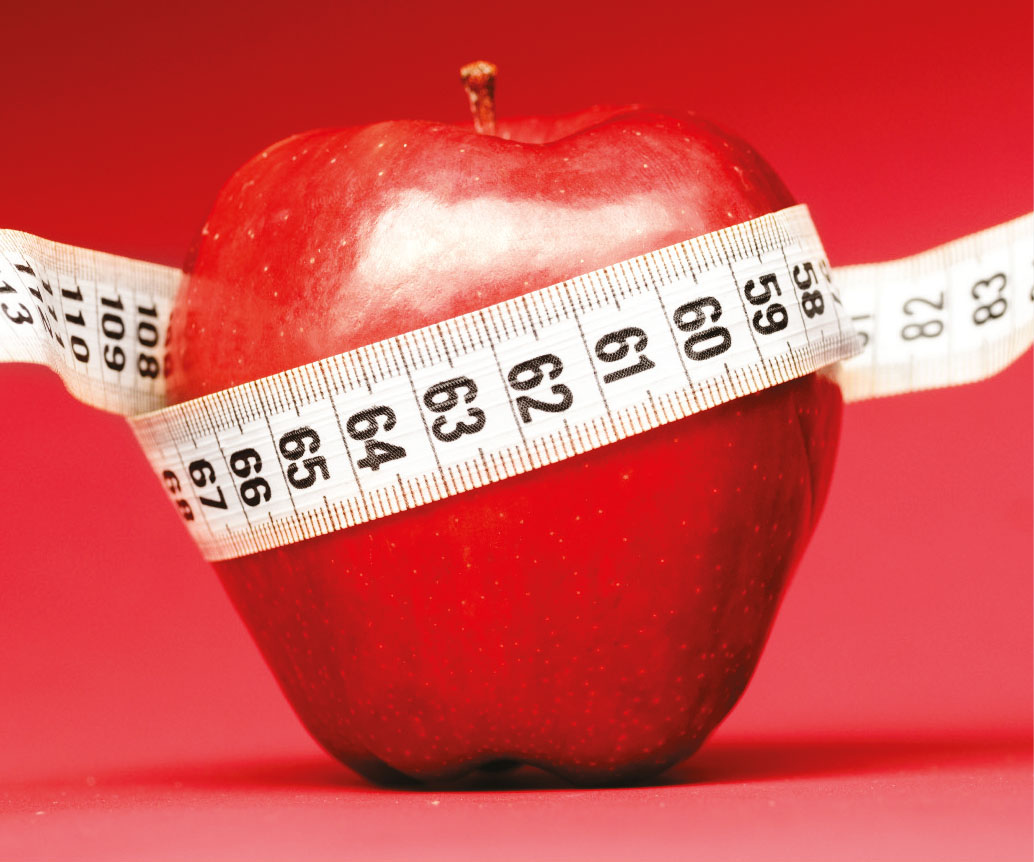EXECUTIVE HEALTH
CHEW THE FAT!
BY Dr. Sanjiva Wijesinha
Recently, I watched British celebrity chef Hugh Fearnley-Whittingstall’s intriguing BBC documentary ‘Hugh’s Fat Fight’ describing his campaign to motivate Britishers to lose weight. As he rightly says, “we have a food industry whose combined sense of social responsibility or lack of it will pretty much determine the future health of the nation.”
The Body Mass Index (BMI) measures whether we’re carrying too much unhealthy weight. It is calculated by weight in kilogrammes divided by height in metres squared. Current recommendations are that BMI should be between 20 and 25. A BMI over 25 but less than 30 is defined as being ‘overweight’ while a person with a BMI over 30 is considered ‘obese.’
Carrying more weight than your body is designed to support is one of the leading causes of premature death. Being overweight has been shown to be dangerous while obesity is considered extremely dangerous. It places you at an even greater risk of dying early from diabetes, heart disease or cancer.
A study titled ‘Health Effects of Overweight and Obesity in 195 Countries over 25 Years,’ published in the authoritative New England Journal of Medicine, drew attention to this “growing and disturbing public health crisis.”
After analysing data from 68 million people from 1995 to 2015, the authors found that obesity and being overweight had greatly increased in these 195 countries. The disease burden (notably heart disease and strokes) also increases dramatically.
The statistics for Sri Lanka apparently reveal that 12 percent of males and 19 percent of females were overweight at the time, while two percent of males and five percent of females were obese in 1980. By 2015, these numbers had increased to 19 percent of men and 28 percent of women being overweight, with four percent of men and nine percent of women deemed to be obese.
What’s more, the figures for other countries were even more frightening.
As Fearnley-Whittingstall pointed out, Britain is the fattest country in Western Europe with a quarter of its population being obese!
We Sri Lankans cannot afford to be complacent since the 2015 data shows that 23 percent of our men and 37 percent of the women in our land are carrying more weight than is good for their health. The truth is that you can’t outrun a bad diet. We put on weight because we consume too much of the wrong kinds of food and drink. Sugar, a prime source of calories, hides in the food we love. Fizzy aerated waters contain lots of added sugar. A can of cola contains about eight spoons of sugar, a pint of beer has about 225 calories and even a Tetra Pak of ‘healthy’ fruit juice from the supermarket has the equivalent of eight spoons of sugar!
Convenience foods that we buy because we don’t have the time nor inclination to prepare meals at home contain more calories than their homemade equivalents. Consuming food prepared outside the home makes it easy for us to eat rubbish and put on weight.
Even if we don’t want to snack, some company or another is always trying to sell unhealthy snacks to us.
Fearnley-Whittingstall explains this well: “The business of designing and selling mass-produced food has rapidly outstripped our ability to defend ourselves against it … When it comes to our health, it’s amazing how adept we are at deceiving ourselves and tweaking our narratives to avoid making changes.”




